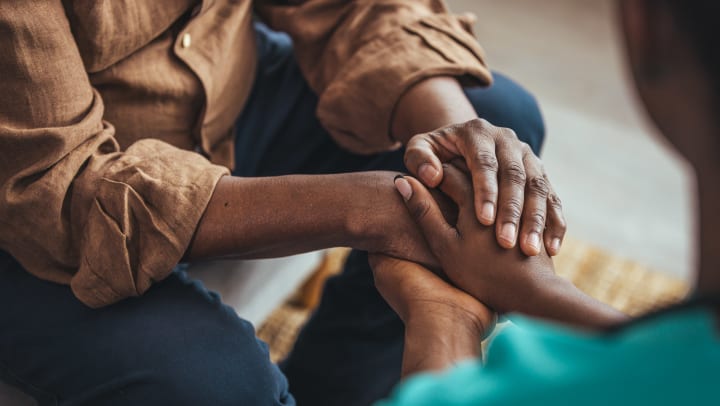The military community is not immune to the risks associated with suicide and suicide ideation, and we can all do our part to be aware of the warning signs.
According to the American Foundation for Suicide Prevention, research shows that suicide is related to brain functions that impact decision-making and behavior control. That makes it difficult for people to find positive solutions to life's challenges. Nearly 90% of all people who die by suicide have an underlying and often treatable mental health condition.
Like other mental health conditions, suicidal thoughts can impact anyone, regardless of age, gender, or background. Research reflects that death by suicide is the second-highest leading cause of death in the United States for adults between the ages of 25 to 34, making it incredibly important for everyone to know the signs, learn how to manage mental health, and find ways to help those we love.
The Centers for Disease Control and Prevention note that the warning signs for suicide ideation might include:
- Acting anxious or agitated
- Displaying mood swings
- Increased use of alcohol or drugs
- Sleeping too little or too much
- Showing rage
Additionally, those at risk might talk about:
- Feeling hopeless
- Having no purpose
- Being trapped
- Being in pain
- Being a burden to others
- Seeking revenge
If you're considering hurting yourself, looking for ways to end your life, or are becoming self-destructive, seek help immediately.
You are not alone.
Contact the Military Crisis Line.
The Military Crisis Line has phone, text, and online chat services available for all service members and families. This free support is available 24/7 and is 100% confidential.
Current Service Members and their families may face different mental health issues than those in the general public. Several resources are curated specifically for service members, and most of these are staffed 24/7 by veterans and military spouses.
Military OneSource
Military OneSource is a free service provided by the Department of Defense to service members and their families to help with a broad range of concerns, including possible mental health problems. Call and talk anytime, 24 hours a day, seven days a week, at 1-800-342-9647.
Military OneSource provides comprehensive information on every aspect of military life at no cost to active duty, Guard, and reserve component members and their families. Find helpful resources, products, articles, and tips on numerous topics related to military life.
DCoE Outreach Center
The Defense Centers of Excellence for Psychological Health and Traumatic Brain Injury (DCoE) provides information and resources about psychological health, post-traumatic stress disorder (PTSD), and traumatic brain injury. To contact the center:
Call 1-866-966-1020, 24 hours a day, seven days a week
E-mail resources@dcoeoutreach.org
The Defense Department BeThere Peer Support Call and Outreach Center provides targeted help for any area of life to active duty, National Guard, and Reserve members and their families. The call and outreach center is staffed by veterans and military spouses and is available 24/7/365 by phone, text, or live chat.
The Virtual Hope Box is a smartphone application. It contains simple tools to help patients with coping, relaxation, distraction, and positive thinking. It provides personalized, supportive audio, video, pictures, games, mindfulness exercises, positive messages and activity planning, inspirational quotes, coping statements, and other tools.
The Defense Suicide Prevention Office provides advocacy, program oversight, and policy for the Defense Department's suicide prevention, intervention, and postvention efforts to reduce suicidal behaviors in service members and their families to increase the force's readiness.
The National Action Alliance for Suicide Prevention is the public-private partnership advancing the National Strategy for Suicide Prevention. It helps support community-based efforts to implement effective suicide prevention strategies.
Tricare
TRICARE is a health care program serving uniformed service members, retirees, and their families worldwide.
National Resource Directory (NRD)
The National Resource Directory (NRD) connects wounded warriors, service members, veterans, and their families with national, state, and local support programs. NRD is a partnership among the Departments of Defense, Labor, and Veterans Affairs.
DoD/VA Outreach
Moving Forward: A free, online educational and life coaching program that teaches problem-solving skills to help you to handle life's challenges better. It is designed to be especially helpful for veterans, service members, and their families.
VA Suicide Prevention Videos
Watch videos from the Department of Veterans Affairs and other organizations about reaching out for help.
If you would like to learn more about understanding mental health in the military, please visit our blog.


